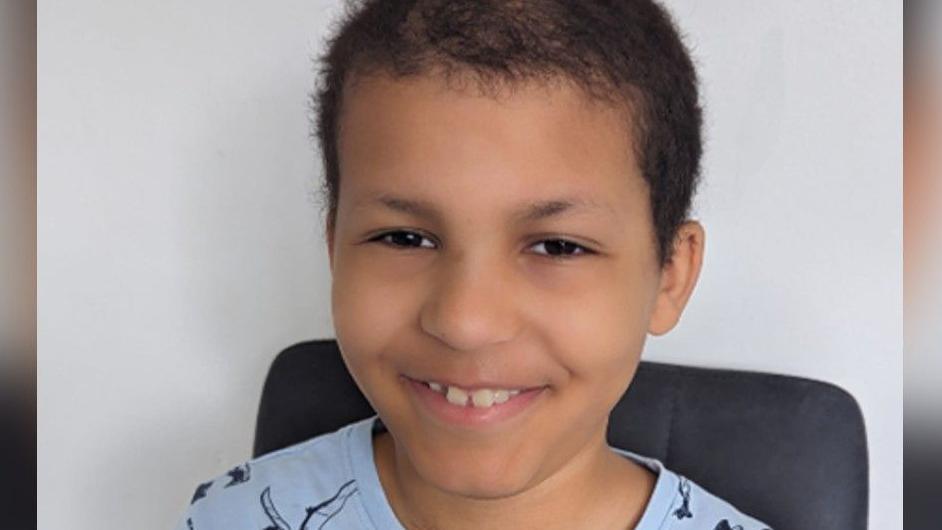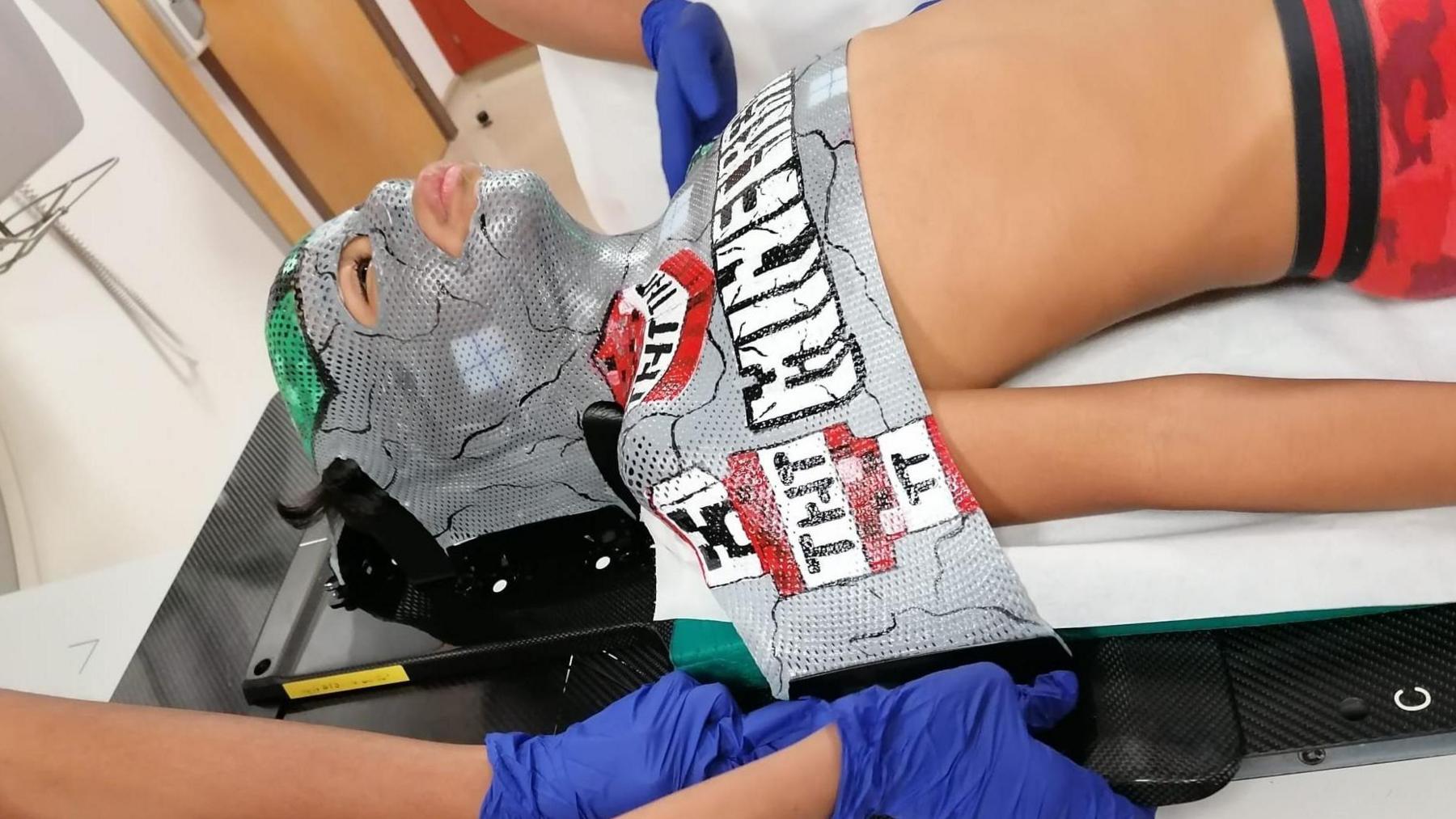Mother's relief as son gets cancer drug on NHS

Alexander Josephs' illness is currently in remission after three years of treatment
- Published
A mother who was spending £11,000 every three months to pay for her son's brain tumour medication has spoken of her relief after the drugs became available on the NHS in England.
Alexander Josephs, 10, has been taking the medication for the past two-and-a-half years since it was shown to slow the growth of his type of tumour.
His mother turned to crowdfunding to pay for the treatment - a combination of the drugs dabrafenib and trametinib.
The National Institute for Health and Care Excellence (NICE) approved the medication for NHS funding in April. Previously it could only be sourced privately.
'More than we could cope with'
Alexander's mother Rhonda Josephs, from Bromley, south-east London, said the family set up a GoFundMe page to appeal for donations.
"Having a child with cancer, then having to raise loads of money - that was almost more than we could cope with.
"To have that financial stress lifted, I can't put it into words.
"It just felt so strange to be able to walk past the cashier's office and not hand over £11,000, and go to the pharmacy like any other person."
Alexander has glioma, the most common type of brain cancer in children.
The two drugs work together by blocking the growth signal coming from the mutant BRAF protein and can slow or even stop the tumour from growing.
NICE - the body that decides which treatments should be funded by the NHS - approved the medication for use in patients aged one and over with low-grade or high-grade glioma with the genetic mutation BRAF V600E.
It is believed that about 30 children in England may be eligible for this medication on prescription.
- Published22 July 2024
- Published12 May 2024
- Published6 February 2024
It followed clinical trials undertaken at Great Ormond Street Hospital.
In addition to taking the medication, Alexander has undergone three rounds of surgery and radiotherapy.
He is now in remission, but continues to take the treatment.
Some of the money raised through crowdfunding also allowed Alexander to visit Germany to have a personalised cancer vaccine, which could help prevent the disease returning.

Alexander has had surgery and radiotherapy as well as the medication
Mrs Josephs described her son as "perfectly fit and healthy, really strong and really into sports" before his condition was discovered in 2020.
The first sign of illness was a seizure which "lasted for a really long time... it was terrifying".
When Alexander returned to hospital three months later after another seizure, scan results revealed he had a brain tumour.
This turned out to be an aggressive glioma which had grown and spread to his spine.
Medics told the family that Alexander was in remission in January, leaving Mrs Josephs "cautiously optimistic".
"They were words we'd waited to hear," she added. "Alexander is getting back to his sports and he's just becoming a normal little boy again. He's doing remarkably well."
'Immense challenge'
Cameron Miller, director of strategy and external affairs at the Brain Tumour Charity, said the charity had previously funded research that helped identify BRAF mutations in brain tumours.
"When a breakthrough came following clinical trials, we worked with NICE to ensure the patient voice was heard.
"Our representatives, including a patient expert, participated in the scoping meeting and provided essential evidence to the committee meeting. So, we are delighted at this outcome.
"Yet Alexander's struggle underscores the immense challenge of finding cures for this complex and unpredictable group of diseases."
Mrs Josephs added: "I do feel children with brain tumours are written off and this shows they shouldn't be."
Listen to the best of BBC Radio London on Sounds and follow BBC London on Facebook, external, X, external and Instagram, external. Send your story ideas to hello.bbclondon@bbc.co.uk, external